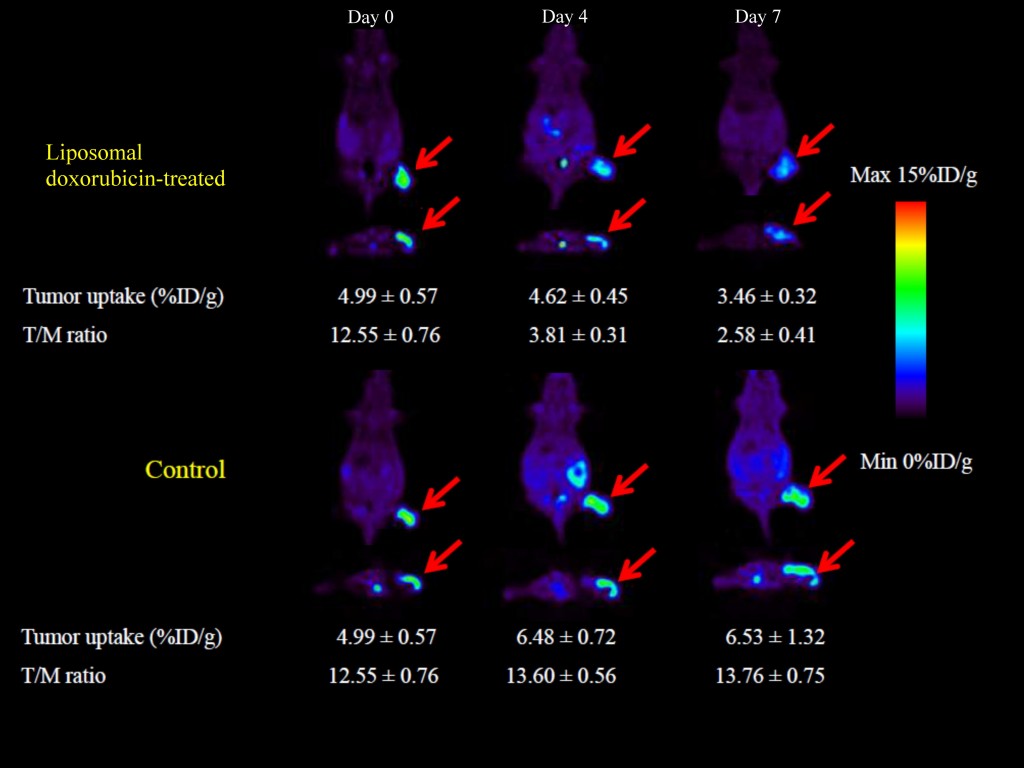This study clearly demonstrated that pegylated liposomal doxorubicin (lipo-dox) is an effective anti-cancer agent against the growth of HepG2 hepatoma and 18F-FLT-PET could noninvasively provide early information of tumor response during the course of treatment. We believed this modality can help physicians choose the optimal management for patients clinically.
Attached figure is the microPET images of lipo-dox-treated and control groups at 1h after an intravenous injection of approximately 3,7 MBq of 18F-FLT on days 0, 7 (after three courses of lipo-dox), and 14 (after six courses of lipo-dox). The mice received lipo-dox showed an apparent reduction in tumor 18F-FLT uptake; the tumor-to-muscle ratio (T/M) derived from images dropped to 3.81±0.31 on day 7 and 2.58±0.41 on day 14, compared to baseline (12.55±0.76) on day 0 (p<0.01), while those of the control group remained steady (12.55±0.76 on day 0 and 13.64±0.56 on day 7). Decreased 18F-FLT uptake reflects the retarded tumor proliferation in lipo-dox-treated group; this was confirmed by immunohistochemistry staining of Ki-67.
Chun-Yi Wu, Lin-Shan Chou, Pei-Chia Chan, Chung-Hsien Ho, Ming-Hsien Lin, Chih-Chieh Shen, Ren-Shyan Liu, Wuu-Jyh Lin, Hsin-Ell Wang

Source: Dr. Chun-Yi Wu, Hsin-Ell Wang
